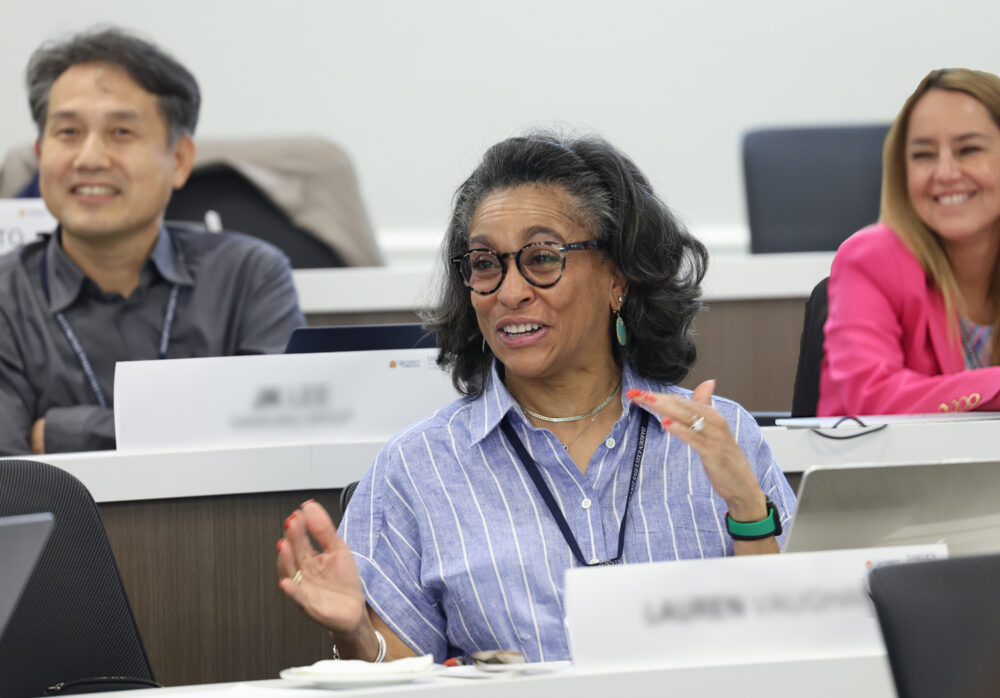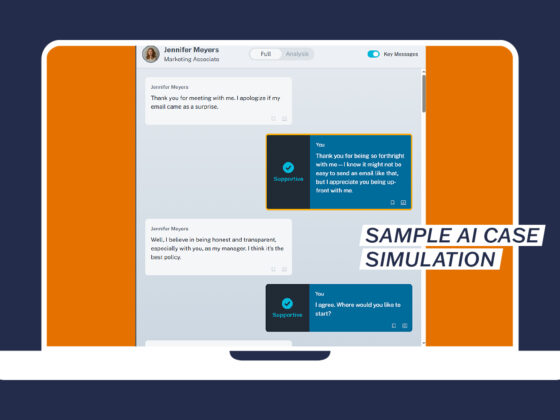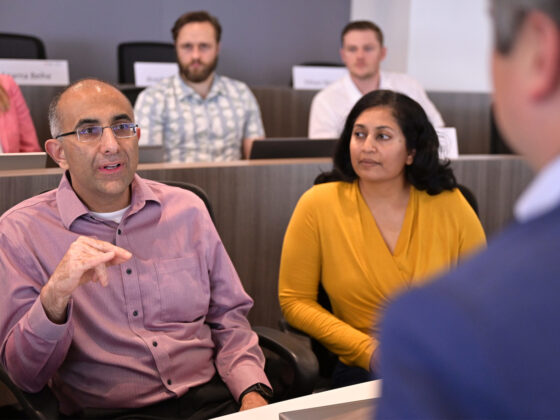Over the past several years, I’ve had the opportunity to work with hundreds of leaders navigating increasingly complex decisions across sectors and functions. And no matter the industry or title, one theme continues to surface: the importance of strong, agile thinking in the face of uncertainty.
At Darden Executive Education & Lifelong Learning, our case study method continues to be a powerful vehicle for this kind of development. But in this new era—one shaped by generative AI and digital acceleration—the case method is more than just a signature teaching style. It’s become a critical counterbalance to a trend we’re only beginning to fully understand: the erosion of critical thinking skills due to overreliance on technology.
What AI Can’t Do For Us
AI can generate content, analyze data and even make decisions. What it can’t do is think critically on our behalf. It can’t weigh context, wrestle with ambiguity or ask the kinds of questions that challenge our assumptions. But those are precisely the capabilities leaders need today.
A recent study by Michael Gerlich, published in Societies (2025), offers timely insight into this issue. The research found that frequent use of AI tools is significantly correlated with lower critical thinking ability—especially among younger users. The culprit? Cognitive offloading. In short, the more we rely on AI to think for us, the less we’re exercising our own thinking skills.
The case method doesn’t just teach business strategy or leadership frameworks—it requires you to think. To analyze incomplete data, to make decisions under pressure, and to defend your reasoning in front of peers.
Learning to Think Again
This is where the case method shines. It doesn’t just teach business strategy or leadership frameworks—it requires you to think. To analyze incomplete data, to make decisions under pressure, and to defend your reasoning in front of peers. It’s not about having the right answer; it’s about developing the discipline of inquiry.
At its heart, the case method is Socratic. Faculty don’t deliver content; they ask tough, thoughtful questions. And in doing so, they draw out insights and challenge participants to go deeper. This back-and-forth builds the very muscle that AI can’t replace: the capacity to think critically in real time, under pressure and in community.
More Than a Pedagogical Choice
This isn’t about resisting technology or romanticizing the past. It’s about equipping leaders with the ability to use AI as a tool—not a crutch. Gerlich’s study underscores this point: individuals with higher educational attainment showed stronger critical thinking skills, even when using AI regularly. In other words, when you build the habit of thinking well, you’re better able to leverage technology without losing your edge.
That’s what we’re doing in every Darden classroom—whether in-person, virtual or hybrid. We’re creating the space for leaders to re-engage with the kind of deep, reflective thinking that’s increasingly rare—and increasingly essential.
Lead Innovation with Confidence
AI is transforming business as we know it. Driving Ethical Innovation in the Age of AI provides context, strategy and ethical frameworks to harness emerging technologies responsibly.
The Leadership Imperative
In a world moving faster by the day, it’s tempting to reach for the quick answer or let an algorithm make the call. But leadership demands more. It demands perspective. Judgment. The courage to challenge, to reflect and to decide.
And that’s why the case study method isn’t just a powerful learning tool. It’s a leadership imperative for the GenAI era.
Lisa Cannell (MBA ’17), Senior Managing Director for Client Solutions, has an extensive background in HR and client development. She works closely with organizations and their learning and development teams to address their talent and organizational needs through diagnoses of the leadership development and capability building requirements needed to retain top talent, grow to the next level and successfully manage change.





